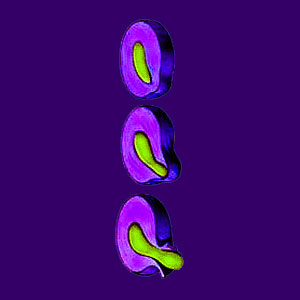
This patient guide provides insight to many lesser known facts about herniated discs, which are very important to understand if you have been diagnosed with this common spinal abnormality. Herniated discs have a terrible reputation as a long-term source of chronic back pain and considerable disability. This perception is not exactly accurate, since the herniated disc has been vilified far beyond its abilities to actually cause pain.
I hope this discussion of verified medical facts helps you to better understand the nature of any disc-related diagnosis you might have been given and provides you with some important topics of conversation to have with your doctor.
True Facts About Herniated Discs
Here are some lesser known facts about herniations:
Herniated discs can cause pain in some instances, but this pain will typically resolve on its own in 2 to 8 weeks time.
The vast majority of herniations go completely unnoticed, since they create no pain or related symptoms. Many of these herniations are discovered by accident during routine testing for an unrelated condition.
Back surgery demonstrates some of the worst curative results of any herniated disc treatment. Surgery might also lead to permanent functional loss and physical limitations. Of course, failed back surgery syndrome is rampant and is a real nightmare to endure.
The normal degenerative processes which act upon the spines of every human being contribute to herniations. Therefore, herniations are simply a normal and expected part of getting older for most people. Degeneration-induced herniated discs are rarely painful.
Facts and Myths About Herniated Discs
There are many accepted myths about disc injuries which contribute considerably to the diagnostic nocebo effect of a confirmed bulging disc. Some of the most common myths include:
All herniations are painful.
All herniations are the result of injury.
Most herniations require surgery.
All herniated discs cause pinched nerves.
Most doctors do not do enough to reassure diagnosed patients and certainly rarely provide them with accurate and true statistics on the common incidence and often asymptomatic nature of herniated discs.
Meanwhile, research clearly shows that there is no correlation between disc herniations and back or neck pain complaints. When compared to patients who have herniated discs and back pain, just as many other people have disc issues, but no pain, and just as many people have pain, but no disc issues.
Facts About Herniated Discs Conclusions
I, like you, had a huge fear of the very words herniated disc. I was brought up hearing horror stories about my grandfather’s lower back pain and seeing the effects of a lumbar herniated disc in my mother. When I was diagnosed with not one, but 2 herniations in my early twenties, I was devastated. I bought into the old mythology 100%!
It took me many years of suffering through various ineffective treatment strategies in order to learn all the facts that I needed to know about my supposed disc pain. After many years of research and active involvement in patient advocacy on an international level, I am confident that discs can indeed cause pain, but do not necessarily have to be problematic. Most are non-issues, especially if they do not occur from sudden violent trauma.
This is all very useful to me now, since at this stage of life, I have 12 known herniations, including the 2 oldest in my lower back, a few in my upper back and every single disc in my neck. If I was not intimately knowledgeable about the true facts of herniations, I am quite certain that I would be a fearful mess.
If you are unsure about your disc-related diagnosis or its ability to create painful symptoms, I strongly suggest you get more involved in your own care and begin your research immediately. There are many great sources of information to read online and you can always speak to your doctor for additional pertinent details of your specific condition.





